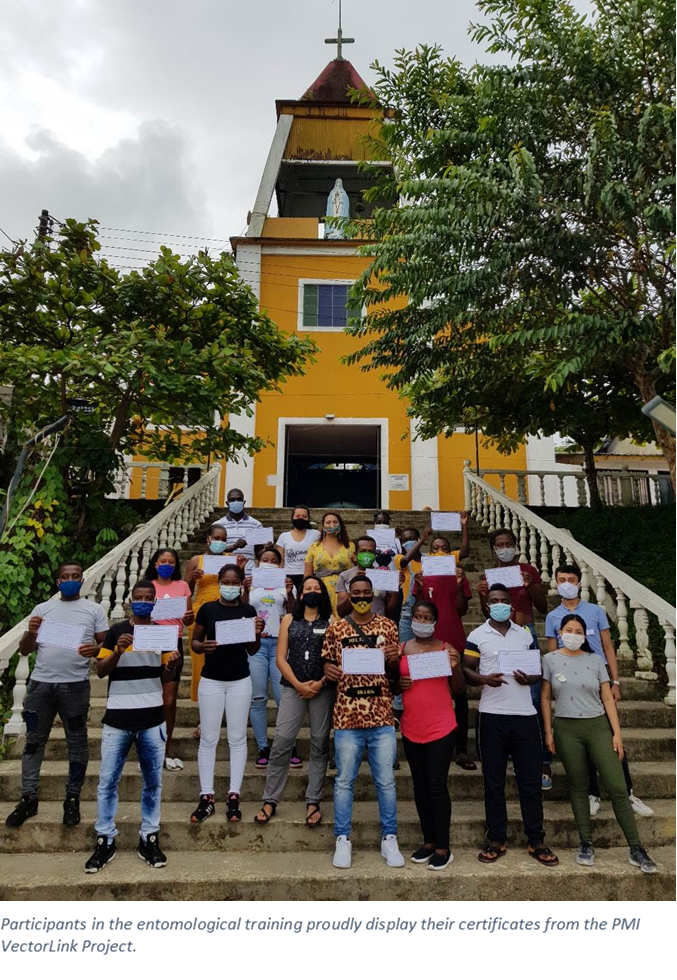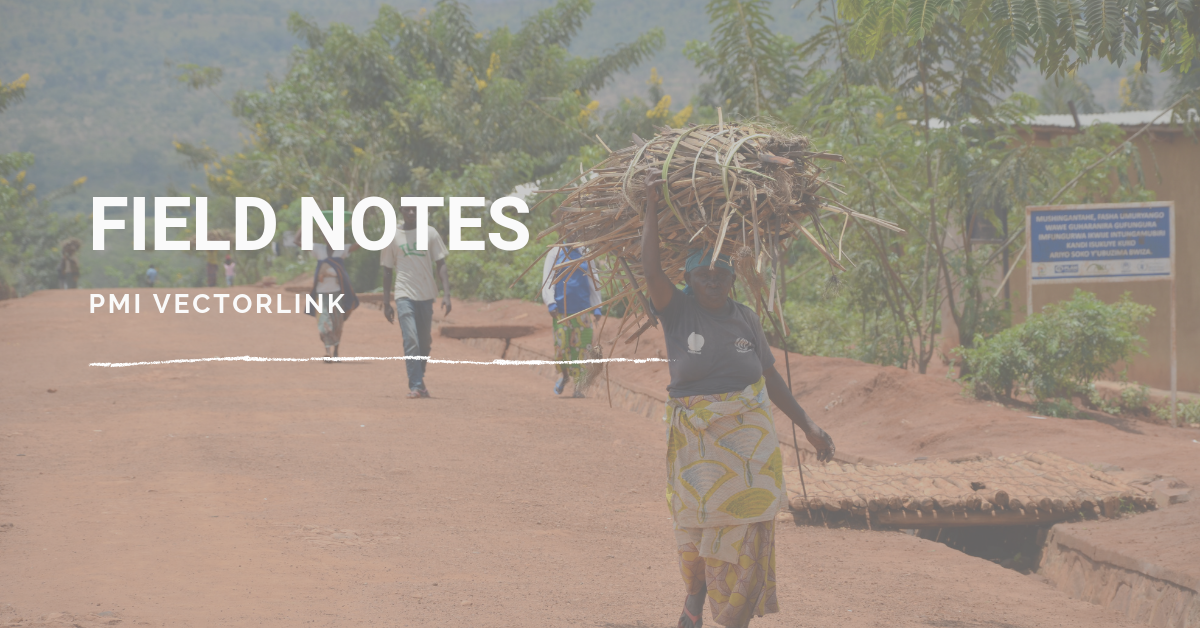 This week’s Fist Bump goes out to VectorLink Latin American and the Caribbean (LAC) for their perseverance in successfully launching project activities during a global pandemic.
This week’s Fist Bump goes out to VectorLink Latin American and the Caribbean (LAC) for their perseverance in successfully launching project activities during a global pandemic.
Approximately 102 million people are at risk of malaria in Latin America. While ITNs and IRS are standard tools for malaria vector control, there is limited scientific evidence on the effectiveness of these vector control measures on malaria vectors in the LAC region. For this reason, PMI VectorLink LAC is measuring the entomological impact of both ITNs and IRS when delivered under ideal circumstances through a two-armed cluster-randomized trial in the Pacific Coast of Colombia, where the neotropical mosquito Anopheles albimanus is the primary vector.
Since October 2020 VectorLink LAC has worked hard to start up project operations during the COVID-19 pandemic, resulting in:
- strong collaboration with the local government, including a signed MoU
- 40 clusters identified for the study trial
- 42 field workers recruited and trained in malaria entomology, mosquito collection, and COVID-19 mitigation measures; and
- A fully refurbished lab facility and insectary.
The 40 clusters were randomly assigned to receive either IRS or ITN for the entomological impact evaluation. VL LAC is assisting with the interventions, which will cover approximately 12,000 inhabitants.
VL LAC successfully completed baseline entomological data collection in February 2021, one month before the government began IRS and ITN distribution in the study area. At baseline, 18,256 Anopheles were collected in both indoor and outdoor human landing catches. Entomological data collection will continue for 18-months post-intervention. The results will help guide national and regional malaria vector control decision-making, to ensure that resources are invested in the interventions that are most effective in controlling the local malaria vectors.
Congratulations, VL LAC for these impressive accomplishments!


